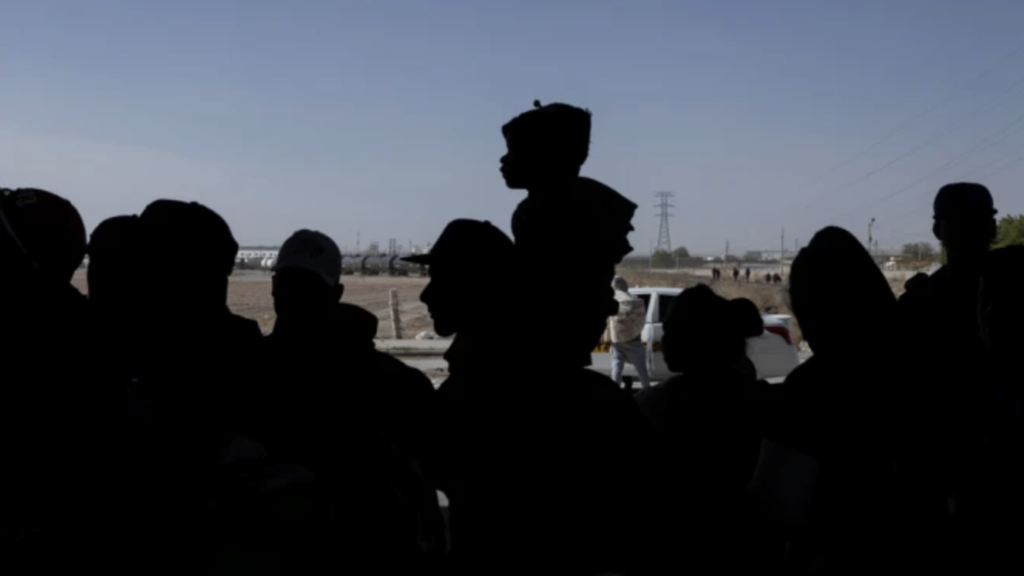The international community has a moral and legal responsibility to protect refugees fleeing religious persecution, according to a report by the United States Commission on International Religious Freedom (USCIRF).
“While states are responsible for protecting the fundamental human rights of their own citizens, refugees by definition do not receive such protections from their own governments,” the report noted.
As the number of refugees has doubled over the last decade, there are growing challenges for neighboring countries to host them. Despite the growing numbers, the USCIRF report noted that it is not just a moral responsibility for countries to welcome refugees but a legal one.
The International Religious Freedom Act, or IRFA, includes several provisions related to asylum seekers and refugees, especially for individuals who have fled severe violations of religious freedom. The IRFA was passed in 1998 to promote religious freedom as a foreign policy of the United States and to advocate on behalf of individuals persecuted for their religious beliefs.
The report also detailed the 1951 Refugee Convention and its 1967 Protocol, which are “the main instruments that define legal obligations for refugee protection.” The 1951 Convention requires host governments to ensure the safety and human rights of refugees, including their rights to nondiscrimination, freedom of religion, and access to justice, housing, and work.
More than 40 territories are not party to the 1951 Convention, its 1967 Protocol, or both, but the report explained they still have responsibilities to refugees residing within their borders through domestic law, customary international law, or other treaties.
According to the report, many countries have legal obligations to the Universal Declaration of Human Rights, which guarantees the right to seek asylum from persecution. Forceable return is also not permitted, prohibiting “all states from returning an individual to a place where they would face a real risk of persecution, torture, threat to life, or other serious human rights violations.”
Several additional international treaties also enforce similar rules, including the Convention against Torture and Other Cruel, Inhuman, or Degrading Treatment or Punishment of 1984, and the International Convention for the Protection of All Persons from Enforced Disappearance of 2006.
Treatment of refugees
To further explain the necessary care for refugees from host countries, the report outlined “the mounting tensions surrounding vulnerable displaced populations across South and Southeast Asia.”
As of November 2024, Thailand hosted about 86,000 refugees from more than 40 countries. The majority of them arrived from neighboring countries in Southeast Asia and were mostly Muslim Uyghurs who attempted to escape from China to Turkey through Thailand in 2014.
Thai authorities arrested around 300 of the members. Eventually, they sent 173 (mostly women and children) to Turkey, but deported another 109 (mostly men) back to China. The remaining 53 refugees were placed in immigration detention under inhumane conditions.
The Thai government repeatedly denied the UN Refugee Agency (UNHCR) permission to speak with them, prevented other human rights organizations from conducting prison visits, and limited inmates’ access to adequate legal consultation. Five reportedly died in detention, including two children.
In 2024, the Pakistani government announced a strategy for the deportation of Afghan refugees, who were blamed for an increase in terrorist attacks. The announcement “prompted detainment, forced repatriation, violence, and intimidation against these refugees over the past year,” according to the report.
USCIRF said it “is particularly concerned that Pakistan has forcibly returned religious minorities who fled persecution.” This includes Christians, Muslims, and Sikhs who cannot freely practice their religious beliefs without fear of violent retribution in their home countries.
Bangladesh has not signed the 1951 Refugee Convention or the 1967 Protocol, and therefore it “lacks specific national legislation governing refugee affairs.” According to the report, “it bases its refugee policy on humanitarian grounds and temporary accommodation.”
When a USCIRF delegation visited Cox’s Bazar, Bangladesh, in November 2022, it witnessed “serious shortcomings in support from the Bangladeshi government and society toward the refugees facing severe hardships in finding livelihood, education, security, and social cohesion amid the desperation of the camps.” The group was primarily Muslims, Christians, and Hindus.
USCIRF’s 2025 Annual Report found that religious refugee communities in Malaysia “have no legal protection,” facing “extortion, exploitation, arrests, and detention.” They also “struggle to access education, health care, and jobs amid widespread negative sentiment against them.”
“With the number of refugees increasing, these populations are likely to become even more vulnerable,” the USCIRF wrote. “Refugees are forced to flee their homes only to encounter extreme challenges in their new communities, such as discrimination, lack of services, poor living conditions, and untreated trauma.”
“Addressing the basic needs of refugee populations can reduce grievances and mitigate the risk of radicalization, which in turn promotes national, regional, and global security,” the report concluded.

